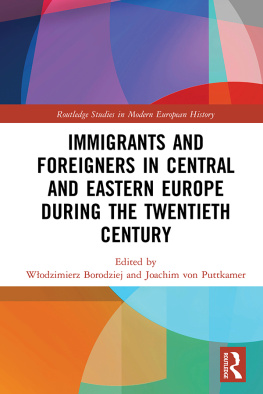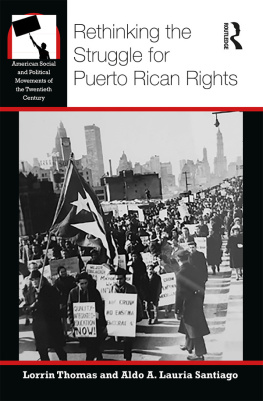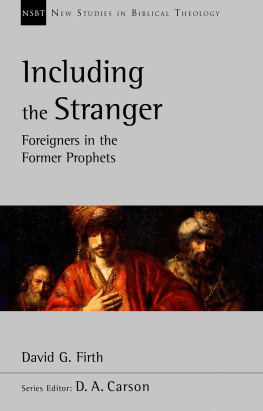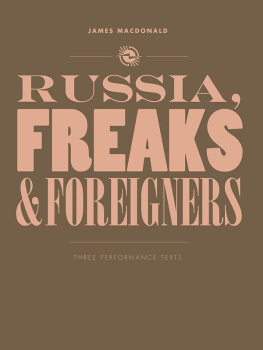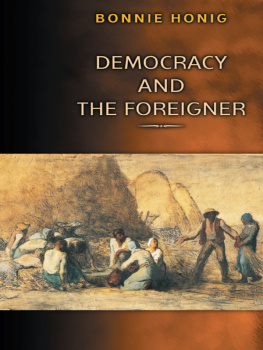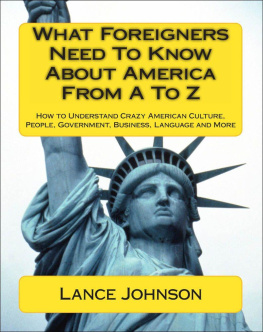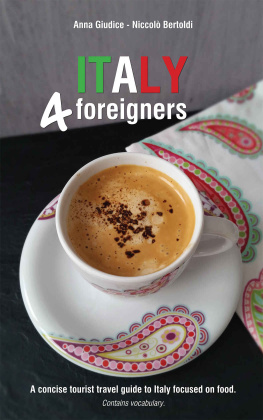Thomas Borstelmann - Just Like Us: The American Struggle to Understand Foreigners
Here you can read online Thomas Borstelmann - Just Like Us: The American Struggle to Understand Foreigners full text of the book (entire story) in english for free. Download pdf and epub, get meaning, cover and reviews about this ebook. publisher: Columbia University Press, genre: Politics. Description of the work, (preface) as well as reviews are available. Best literature library LitArk.com created for fans of good reading and offers a wide selection of genres:
Romance novel
Science fiction
Adventure
Detective
Science
History
Home and family
Prose
Art
Politics
Computer
Non-fiction
Religion
Business
Children
Humor
Choose a favorite category and find really read worthwhile books. Enjoy immersion in the world of imagination, feel the emotions of the characters or learn something new for yourself, make an fascinating discovery.

- Book:Just Like Us: The American Struggle to Understand Foreigners
- Author:
- Publisher:Columbia University Press
- Genre:
- Rating:4 / 5
- Favourites:Add to favourites
- Your mark:
- 80
- 1
- 2
- 3
- 4
- 5
Just Like Us: The American Struggle to Understand Foreigners: summary, description and annotation
We offer to read an annotation, description, summary or preface (depends on what the author of the book "Just Like Us: The American Struggle to Understand Foreigners" wrote himself). If you haven't found the necessary information about the book — write in the comments, we will try to find it.
Just Like Us: The American Struggle to Understand Foreigners — read online for free the complete book (whole text) full work
Below is the text of the book, divided by pages. System saving the place of the last page read, allows you to conveniently read the book "Just Like Us: The American Struggle to Understand Foreigners" online for free, without having to search again every time where you left off. Put a bookmark, and you can go to the page where you finished reading at any time.
Font size:
Interval:
Bookmark:
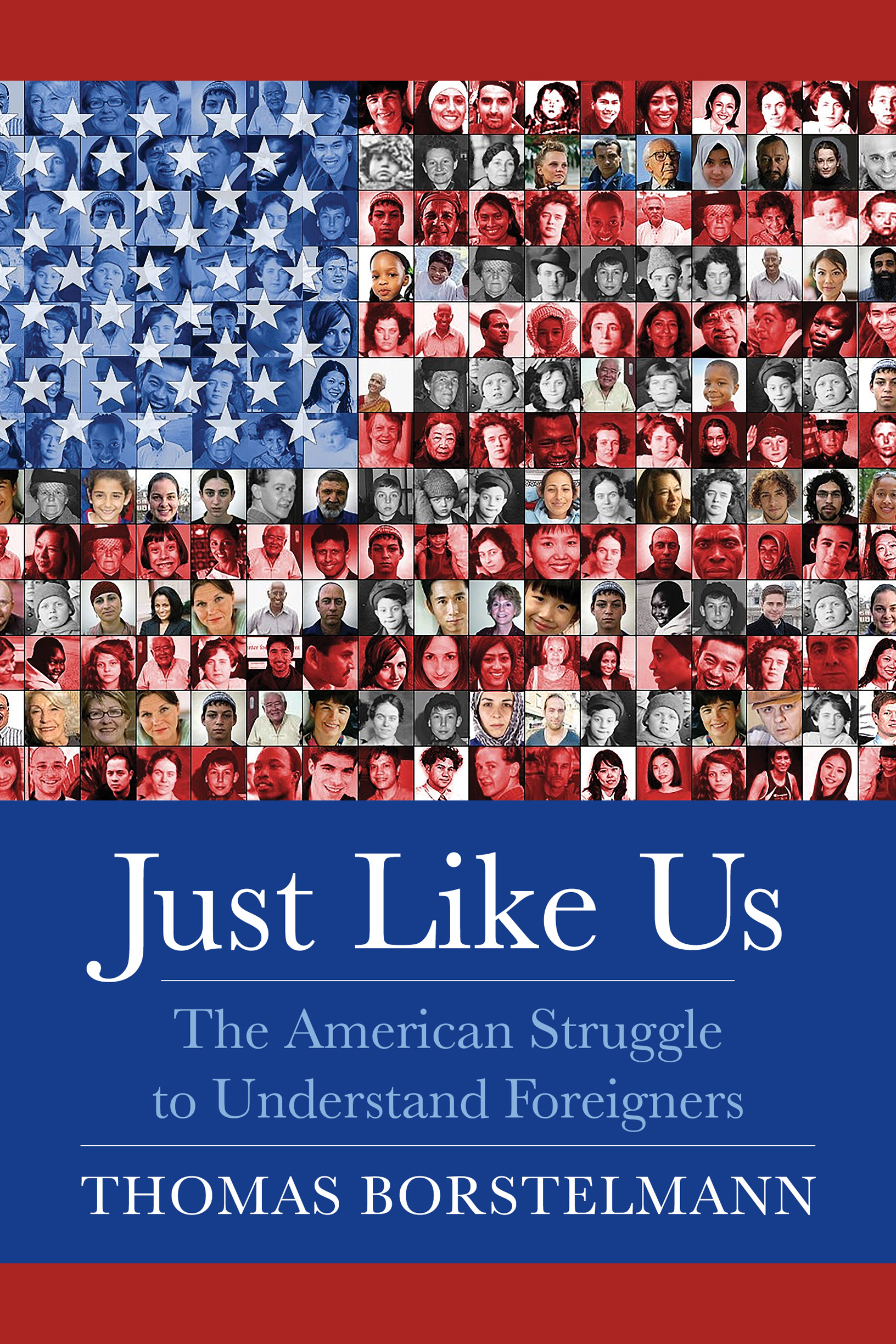
JUST LIKE US
Just Like Us
THE AMERICAN STRUGGLE TO UNDERSTAND FOREIGNERS
Thomas Borstelmann

Columbia University Press
New York
Columbia University Press
Publishers Since 1893
New York Chichester, West Sussex
cup.columbia.edu
Copyright 2020 Thomas Borstelmann
All rights reserved
E-ISBN 978-0-231-55035-2
Library of Congress Cataloging-in-Publication Data
Names: Borstelmann, Thomas, author.
Title: Just like us : the American struggle to understand foreigners / Thomas Borstelmann.
Other titles: American struggle to understand foreigners
Description: New York : Columbia University Press, [2020] | Includes bibliographical references and index.
Identifiers: LCCN 2019043058 (print) | LCCN 2019043059 (ebook) | ISBN 9780231193528 (hardback)
Subjects: LCSH: National characteristics, AmericanHistory. | Cultural awareness United States. | Race awarenessUnited StatesHistory. | United StatesRace relationsHistory. | Cultural pluralismUnited StatesHistory. | GlobalizationSocial aspects United StatesHistory. | ExceptionalismUnited StatesHistory. | Americanization. | Cold WarSocial aspectsUnited States.
Classification: LCC E169.1 .B759 2020 (print) | LCC E169.1 (ebook) | DDC 305.800973dc23
LC record available at https://lccn.loc.gov/2019043058
LC ebook record available at https://lccn.loc.gov/2019043059
A Columbia University Press E-book.
CUP would be pleased to hear about your reading experience with this e-book at .
Cover design: Milenda Nan Ok Lee
Cover image: Courtesy of the Statue of LibertyEllis Island Foundation, Inc., and the American Flag of Faces, Ellis Island National Museum of Immigration
For Dan and John and their generation
I n August 1966, I sailed out of New York Harbor on the Dutch ocean liner SS Maasdam with my family, bound for Ireland. I was eight years old, the youngest of four children. My father, a professor of psychology at Duke University, had won a Fulbright fellowship to teach at Trinity College in Dublin. Five days later, we docked in the middle of the night in Galway Bay. I had never been out of the United States, and I had never been awake and outdoors at 2:30 a.m. As we drove our beige 1964 Plymouth station wagon up the ramp from the ships hold, I was amazed to see hundreds of adult faces crammed up against the chain-link fence in the dead of night. These Irish yearned to see their loved ones, returning for a visit from America, the greatest destination of the Emerald Isles emigrants for more than a century.
Living in Dublin for a year in the mid-1960s taught me for the first time about foreigners. I had met some international kids around Duke, but immersion abroad was different. I was now the foreigner. People in Ireland were a lot like us, it turned out, and my family made lasting friends there. But the Irish did things somewhat differently: how they spoke English, playing soccer and rugby rather than football and basketball, driving exotic double-decker city buses, eating distinctive sausages and smoked fish for breakfast, snacking on mysterious kinds of licorice and toffee candieseveryday matters central to a childs life. I was busy enough not to think too much about American things I might have missed. At the end of the year, after a summer camping tour of Europe, we boarded the Italian ocean liner SS Michelangelo in Naples for the trip home. In the ships dining room the next morning, the waiter, to my amazement, served us Welchs grape juice from its then-iconic glass quart bottle with a narrow neck and a small white metal cap. I hadnt seen Welchs in a year, and my nine-year-old heart leapt. Home!
Fifty years later, products flow much more freely across the Atlantic and across most bodies of water and national boundaries. In the current era of global integration, the world feels much smaller. As citizens of the most powerful and influential country over the past seventy-five years, Americans come into greater contact with other peoples than ever before, both around the globe and within the United States. The resulting interactions require them more than ever to try to understand foreigners, a challenge since the nations earliest days. Americans have long believed themselves a special people, and they considered anew whether other peoples were fundamentally similar to or different from them. How Americans thought about and think about non-Americans is the question this book seeks to answer.
The Americans at the center of this story occupy the mainstream of U.S. culture and society. This tale aims to capture the evolving common sense of the large majority of residents of the United States, as evident in laws, declarations by elected officials, common public behavior, popular publications, widely viewed films and television shows, and other similar sources. This is not a book about dissidents, though several of them will make appearances, nor is it a definitive, weighty tome that seeks to include the voices of all members of U.S. society. Capturing the mainstream of American political culture as it developed over time is the purpose, which cuts somewhat against the grain of the past two generations of American historiography, with their focus (for good reason) on peoples long omitted from earlier histories, such as women, racial and ethnic and religious minorities, gays and lesbians, and immigrants. I am a product of and contributor to that historiographical development, and my previous books as well as the sensibility and tone of this one reflect that development and those interests. But the purpose of this current book is different; it explores the story of a contested but widening acceptance of foreigners within mainstream American life.
A comprehensive history of this topic would be a gargantuan task. What is offered here instead is an extended exploratory essay, one that aims to discern key themes and trends. In one sense, it brings together the long-separated histories of immigration to the United States (traditionally a domestic story) and U.S. foreign relations (primarily an overseas tale), meshing these with the histories of American political culture and popular culture. The book shares the cosmopolitan sensibility of recent scholarship in transnational history, with an emphasis on the movements of people and ideas across borders, even as it focuses primarily on Americans and their views of others. A related but different series of books might concentrate on other peoples in other countries and how they viewed outsiders; yet another series might highlight how the rest of the world viewed the United States and its people. Such worthy projects, however, lie beyond this books reach. The attention here to the thinking of Americans implies no greater valuing of residents of the United States than those of other nations. Rather, this tracking of mainstream attitudes within the most important and influential nation across the past century merely offers one path toward a greater understanding of the history of the United States and its relationship to the rest of the modern world. The United States deserves attention for its power and influence, regardless of judgments about its virtue. Readers will make their own assessments of the latter.
The United States may not be exceptional, but it is distinctive. An exception requires a rule to stand outside of. But there is no single rule or pattern of development that all other nations have followed and that the United States has not. All nations have similarities and differences compared to others. The United States can be usefully compared to other affluent industrialized countries, such as Germany and Japan; to other white settler states, such as Canada and Australia; to other revolutionary republics, such as France and Haiti; to other modern great powers, such as China and Russia; or to other hegemonic empires, such as those of ancient Rome and Great Britain. Every land is unique in its history. It makes little sense to view the United States as somehow more uniquely unique than other countries. The United States is, however, distinctive in a deeply significant way in the modern world: it is both the most powerful state and the most demographically diverse of all the great powers, a result of its reception of the greatest number of immigrants. So how Americans have thought about foreigners has mattered a great deal for the shaping of the world today.
Font size:
Interval:
Bookmark:
Similar books «Just Like Us: The American Struggle to Understand Foreigners»
Look at similar books to Just Like Us: The American Struggle to Understand Foreigners. We have selected literature similar in name and meaning in the hope of providing readers with more options to find new, interesting, not yet read works.
Discussion, reviews of the book Just Like Us: The American Struggle to Understand Foreigners and just readers' own opinions. Leave your comments, write what you think about the work, its meaning or the main characters. Specify what exactly you liked and what you didn't like, and why you think so.

